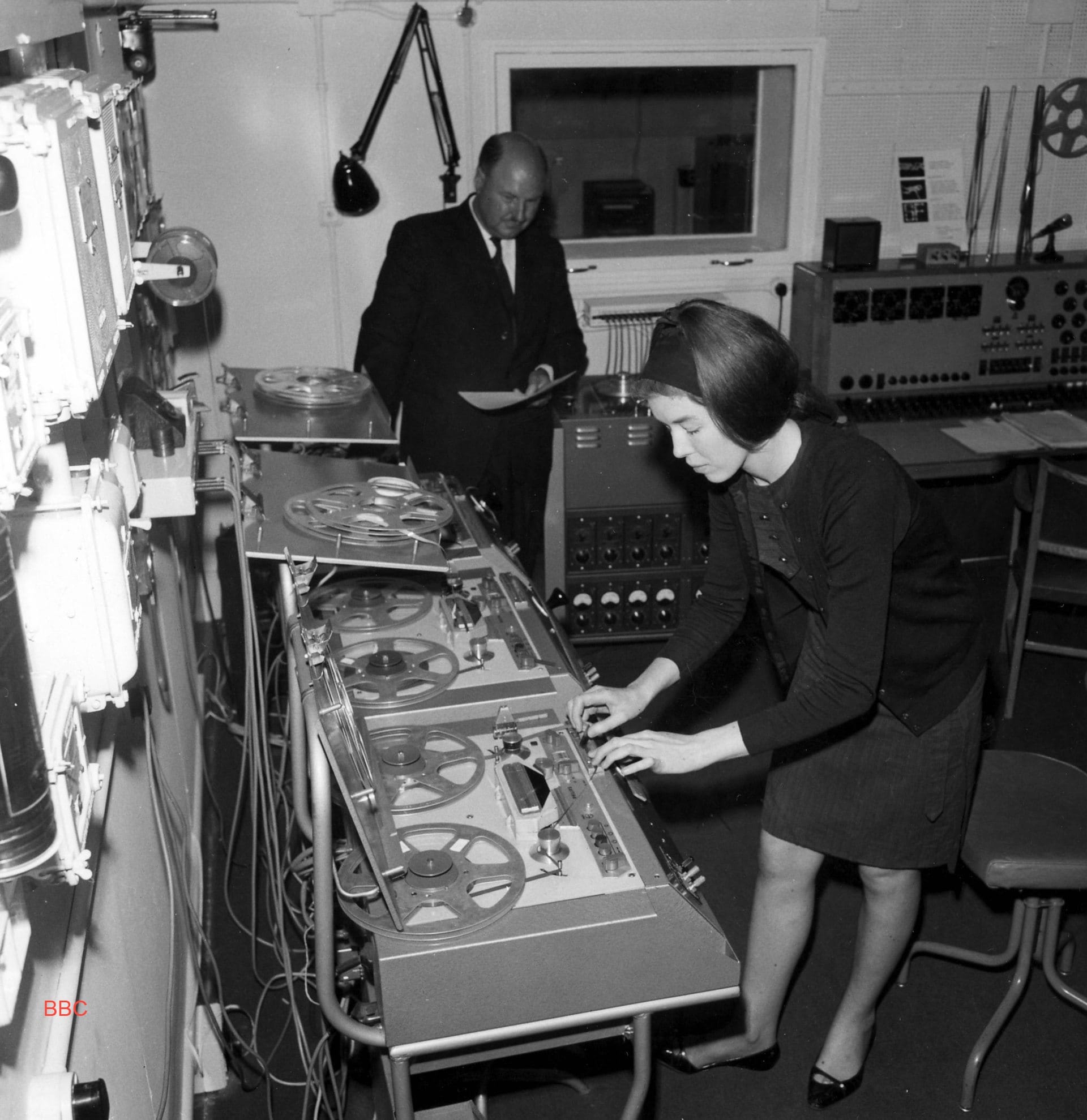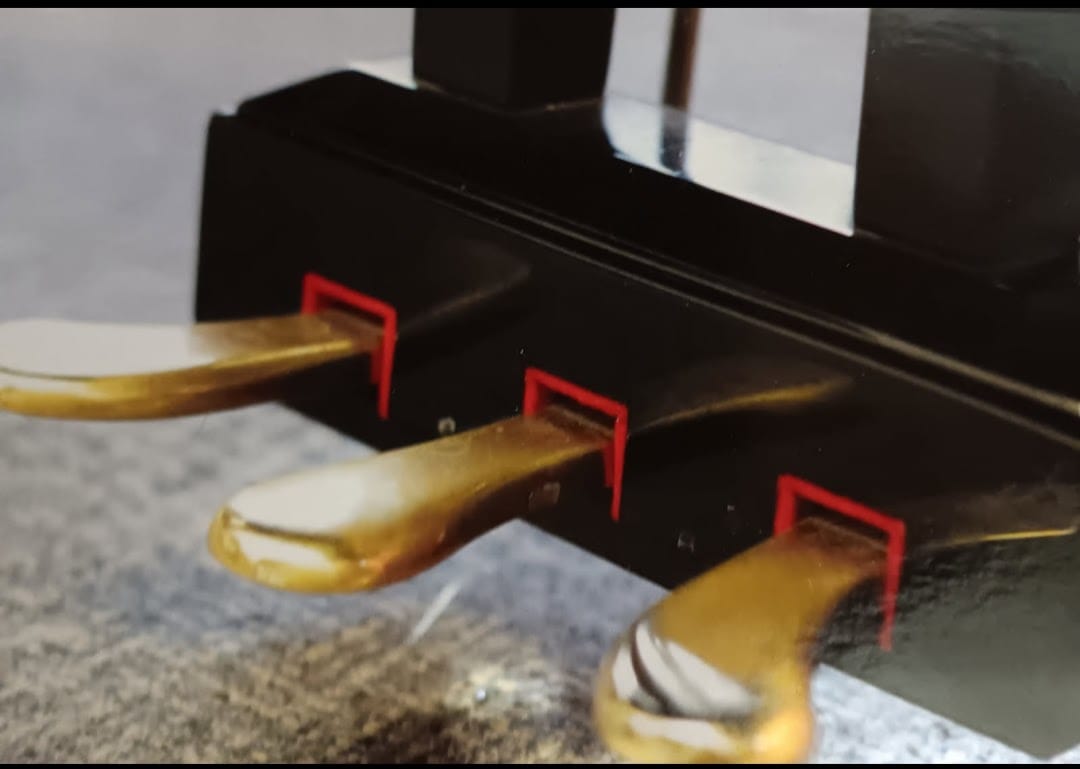Delia Derbyshire

Perhaps best known for bringing to life the Doctor Who theme, Delia Derbyshire (1937-2001) ranks as a pioneer in electronic music--before the use of synthesizers.
Ms. Derbyshire, born in Coventry, England, studied mathematics and music in college. After graduating, she was denied employment at Decca Records because they did not hire women. She then began working at the UN in Geneva. After her tenure, she worked at the music publishing company Boosey and Hawkes, and then in 1960 earned employment at the BBC as a trainee studio manager.
The Radiophonic Workshop, the department in which she worked, had always been lead by a person with a drama background. Ms. Derbyshire was the first person with a music background to fill the role.
Her talents were noticed almost immediately. From childhood, she had experimented with regular, everyday sounds to create music. Edgard Varèse's Poème Électronique, an installation art piece that she experienced at the World Fair in Brussels in 1958, had further inspired her. That dedication showed up in the workplace.

Within months of employment at the BBC, composer Ron Grainer was pleasantly surprised when Ms. Derbyshire played for him a recording based on his composition. In it, not a single musical instrument was used. She instead used oscillators, electronic sounds, cellophane tape, wooden blocks and--this is real--a wobbulator.
Much of her work at the BBC was not credited because of the rules at the time--compositions for television shows were credited to the Radiophonic Workshop, not to individual composers. There is an effort to reverse this and give her the credit that is due.
She retired in 1975 from the BBC and didn't produce music again until the 1990s. She began collaborating with Peter Kember of SonicBoom shortly before her death in 2001 from renal failure.
Ms. Derbyshire left behind a massive catalog, from theme songs to interstitials to avant garde theatrical music. In fact, after she died, 267 reel-to-reel tapes of her music was discovered in her attic, untouched for decades. She inspired countless musicians globally; the respect for Ms. Derbyshire and her abilities is immense, even now.
